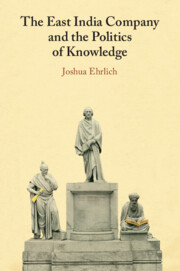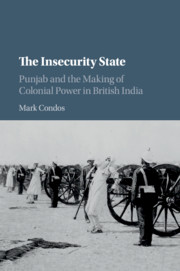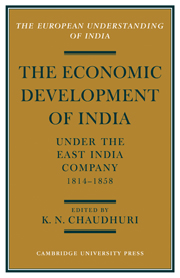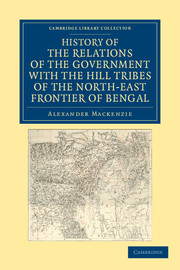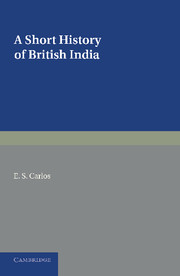The East India Company and the Politics of Knowledge
The East India Company is remembered as the world's most powerful, not to say notorious, corporation. But for many of its advocates from the 1770s to the 1850s it was also the world's most enlightened one. Joshua Ehrlich reveals that a commitment to knowledge was integral to the Company's ideology. He shows how the Company cited this commitment in defense of its increasingly fraught union of commercial and political power. He moves beyond studies of orientalism, colonial knowledge, and information with a new approach: the history of ideas of knowledge. He recovers a world of debate among the Company's officials and interlocutors, Indian and European, on the political uses of knowledge. Not only were these historical actors highly articulate on the subject but their ideas continue to resonate in the present. Knowledge was a fixture in the politics of the Company – just as it seems to be becoming a fixture in today's politics.
- Reveals how ideas about knowledge made up an ideological cornerstone of the East India Company
- Uncovers a world of debate surrounding the political uses of knowledge
- For historians of knowledge, of the East India Company, and of the British Empire in South Asia
Reviews & endorsements
‘This is an important book. Compellingly written, it offers valuable insights into the connections between politics, knowledge, and corporate interests - connections that sit at the core of pressing contemporary debates.’ Kapil Raj, École des Hautes Études en Sciences Sociales
‘For its fresh approach, blending the histories of knowledge and political thought; for its persuasive argument, based on deep research in Persian and European-language sources; and for its lucid and elegant style, Ehrlich’s wonderful book will be required reading for historians of the East India Company, South Asia, and the British Empire.’ Rosane Rocher, University of Pennsylvania
‘In a work as ambitious as it is meticulous, Joshua Ehrlich reveals the British conquest of India to have been the work not only of the ‘merchant’ and the ‘sovereign’ but also of the scholar - as much the product of advancing armies and revenue officials as of the translators, historians, surveyors, libraries, learned societies, colleges, gardens, and many more that made the case for how and why to rule that expanding empire. This book offers a compelling account of how debates over scholarship and education shaped the East India Company state, as well as a thought-provoking reflection on the ways in which the power to create and command knowledge has been central to ideologies of global corporate power, from the eighteenth century to today’s ‘information economy.’’ Philip J. Stern, Duke University
‘… [A] powerful and persuasive argument…. [I]mportant and refreshingly innovative…. [A] thoughtful and considered contribution, founded on wide-ranging research into a wealth of archival material and combined with skilful and imaginative analysis…. [P]acks … [a] powerful contemporary punch…. Rarely do historians succeed in arguing so successfully for the relevance of their work in the maelstrom of the present day ….’ John McAleer, H-Soz-Kult
‘The transition of the East India Company from mercantile organization to full-blown colonial power has been the subject of much scholarly discourse, but as Ehrlich (Univ. of Macau) shows, there are still novel ways to approach the topic … This intellectual history elucidates not just the ideology of imperialism but corporate culture as a whole … Recommended.’ M. Chaiklin, Choice
‘[A]n important addition not only to the scholarship on South Asia but also to the literature on the relationship between state and knowledge.’ Sandipan Mitra, Global Intellectual History
‘A must-read for anyone looking for a scholarly but concise account of the colonial origins of education policy in India. It will also immensely help those researching the historical relationship between state and agencies bestowed with knowledge production by the state.’ Soni Wadhwa, Asian Review of Books
‘This is an important book that constructs a genealogy of our contemporary 'knowledge society' by looking back on the English East India Company’s knowledge politics … an excellent revisionist intervention in South Asian studies and the history of colonialism.’ Prathama Banerjee, The Indian Economic and Social History Review
‘This book is an important and learned contribution to the political and intellectual history of colonial South Asia and the British Empire, and participates in an exciting wave of new scholarship on the East India Company. While offering a deeply contextualised account of knowledge as a colonial political idea, it also connects this history to contemporary debates about the role of corporations as agents of global knowledge production, by showing how controversies about the role of corporations, states and corporate-states in producing and disseminating knowledge have a long and complex past.’ Robert Travers, The English Historical Review
‘… offers an original and densely populated intellectual history of the changing ways that the East India Company’s sovereign obligations and its enduring interests as a merchant came to be tied to the cause of ‘enlightenment’.’ Thomas Newbold, The American Historical Review
Product details
April 2025Paperback
9781009367981
256 pages
229 × 152 × 14 mm
0.375kg
Available
Table of Contents
- Acknowledgments
- Note on the text
- Abbreviations
- Introduction
- 1. Warren Hastings and the idea of conciliation
- 2. Conciliation after Hastings
- 3. The politics of the College of Fort William
- 4. Scholar-officials and the company state in the early nineteenth century
- 5. Education and the persistence of the company state
- Epilogue
- Bibliography
- Index.

